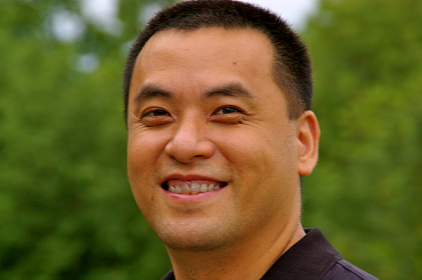
Dr. Keke Chen, Northwestern Mutual Data Science Institute Associate Professor of Computer Science in the Klingler College of Arts and Sciences, has received a $600,000 grant from the National Science Foundation to study confidential computing solutions within scientific collaboration.
Chen’s research project, “Confidential Computing in Reproducible Collaborative Workflows,” was granted through NSF’s Cybersecurity Innovation for Cyberinfrastructure program. NSF CICI supports research on securing scientific data, workflows and infrastructure in three focus areas: usable and collaborative security for science; reference scientific security datasets; and discovery of scientific infrastructure vulnerabilities.

“Data-intensive scientific research projects often involve multiple collaborative parties, each of which may demand confidential processing of their sensitive assets to protect intellectual property or embargoed data or algorithm sharing before publishing a paper,” Chen said. “Integrating confidential computing into reproducible scientific workflows raises significant yet not sufficiently studied challenges. This project aims to identify these unique challenges and investigate novel solutions.”
This study will focus on the efficient hardware-based confidential computing approach, trusted execution environment (TEE) for scientific data analytics applications. Researchers will look at the solutions for scientist-oriented TEE development with trade-offs between usability and security guarantees. They will also study unique attacks derived from the interplay between confidential components and a reproducible workflow to develop mitigation methods based on the attack study to ensure workflow reproducibility and security.
“This is a remarkable research opportunity for Dr. Chen to foster collaboration and innovation,” said Dr. Heidi Bostic, dean of the Klingler College of Arts and Sciences. “Dr. Chen and his research team are seeking to remove the confidentiality and privacy concerns that can stand in the way of open collaboration and collaborative science. Their research can also be extended to other confidential computing scenarios on possibly untrusted platforms, including cloud-based applications we use every day. His work is a great example of Marquette’s outstanding strengths in computer science and data science.”
Chen’s team includes co-investigators Dr. Zeno Franco, associate professor of family and community medicine at Medical College of Wisconsin, and Dr. Zeyun Yu, professor of computer science and biomedical engineering at the University of Wisconsin-Milwaukee. Dr. Ning Jenny Jiang, J. Peter and Geri Skirkanich Associate Professor of Innovation at the University of Pennsylvania, serves as an independent consultant.
The broader impacts will be felt throughout the areas, by enhancing the curriculum of the cybersecurity program at Marquette; generating new course materials for Marquette’s data science program and the bioinformatics program at UWM; contributing to computer science education at local high schools; attracting underrepresented and undergraduate students into cybersecurity and data science research via Marquette’s programs; and strengthening the university’s collaboration with industrial partners.


